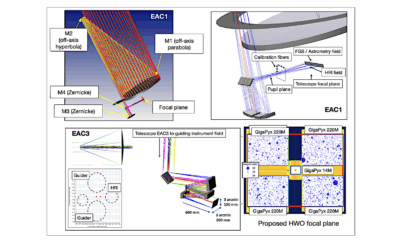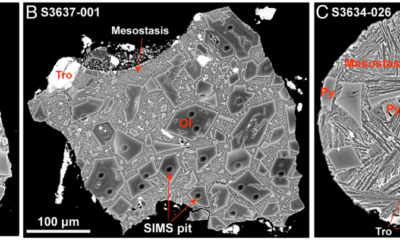Science
Researchers Propose Screening Exoplanets for Essential Metals

A new study by researchers from the University of Naples emphasizes the importance of certain metals in the search for extraterrestrial life. In their preprint paper, Giovanni Covone and Donato Giovannelli suggest that identifying exoplanets with an abundance of specific metals could streamline the process of locating potential life-supporting environments.
Life on Earth is intricately linked to various elements, as these are essential for the energy processes that sustain living organisms. The researchers argue that the availability of metals plays a crucial role in facilitating the chemical reactions necessary for life, particularly through a process known as reduction-oxidation, or redox reactions. These reactions are fundamental to how organisms obtain energy, and they rely on proteins called oxidoreductases, which require metals such as iron, nickel, and copper for their function.
The significance of metal availability in the evolution of life has been evident throughout Earth’s history. Events like the Great Oxidation Event around 2.3 billion years ago, when cyanobacteria dramatically increased atmospheric oxygen levels, transformed the planet and allowed for the development of aerobic respiration. These shifts in elemental availability have shaped the trajectory of life on Earth, leading researchers to consider how similar principles might apply to other planets.
Covone and Giovannelli propose that screening stars and their planets for these critical metals could enhance the search for life beyond our solar system. They argue that while traditional parameters for identifying potentially habitable planets include the presence of free energy, liquid water, and essential biogenic elements known as CHNOPS (Carbon, Hydrogen, Nitrogen, Oxygen, Phosphorus, and Sulfur), these elements are relatively abundant in the universe. Instead, the metals necessary for redox reactions may serve as more stringent indicators of a planet’s potential to support life.
As astronomers continue to discover thousands of exoplanets, prioritizing targets for observation is essential. Resources for direct observation are limited, and focusing on planets with a higher likelihood of hosting life can make future investigations more efficient. The authors argue that a refined search strategy could prove beneficial as the field of astrobiology progresses.
Upcoming missions, such as the European Space Agency’s PLATO observatory, are already set to analyze exoplanet spectroscopy for CHNOPS. By adding metal abundance to their screening criteria, researchers could gather valuable data on the presence of life-supporting elements. This approach could significantly enhance the understanding of planetary systems and their potential for harboring life.
While the study brings a valuable perspective to the ongoing search for life, it also highlights the complexity of this scientific endeavor. Previous research indicates that stars with higher metal content may emit less ultraviolet radiation, which can influence the development of protective ozone layers. This interplay of factors compounds the challenges faced in astrobiology.
The exploration of exoplanets remains a dynamic field, and Covone and Giovannelli’s research introduces a unique consideration that could shape future investigations. As the search for life beyond Earth continues, identifying key metals and their availability may provide a vital clue in understanding where life might exist in the universe.
For further details, refer to the study by G. Covone and D. Giovannelli titled “Transition metal abundance as a key parameter for the search of Life in the Universe.”
-

 Technology4 months ago
Technology4 months agoDiscover the Top 10 Calorie Counting Apps of 2025
-

 Health2 months ago
Health2 months agoBella Hadid Shares Health Update After Treatment for Lyme Disease
-

 Health2 months ago
Health2 months agoErin Bates Shares Recovery Update Following Sepsis Complications
-

 Technology3 months ago
Technology3 months agoDiscover How to Reverse Image Search Using ChatGPT Effortlessly
-

 Technology4 months ago
Technology4 months agoMeta Initiates $60B AI Data Center Expansion, Starting in Ohio
-

 Lifestyle4 months ago
Lifestyle4 months agoBelton Family Reunites After Daughter Survives Hill Country Floods
-

 Technology2 months ago
Technology2 months agoElectric Moto Influencer Surronster Arrested in Tijuana
-

 Technology2 months ago
Technology2 months agoUncovering the Top Five Most Challenging Motorcycles to Ride
-

 Technology4 months ago
Technology4 months agoRecovering a Suspended TikTok Account: A Step-by-Step Guide
-

 Technology1 week ago
Technology1 week agoDiscover the Best Wireless Earbuds for Every Lifestyle
-

 Health3 months ago
Health3 months agoTested: Rab Firewall Mountain Jacket Survives Harsh Conditions
-

 Technology3 months ago
Technology3 months agoHarmonic Launches AI Chatbot App to Transform Mathematical Reasoning





















